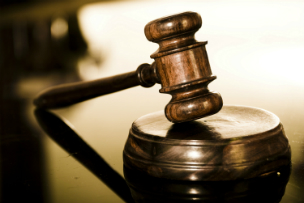Ten Most Frequently Asked Questions About Criminal Cases
As soon as you become aware that the police (or some other investigating agency) are looking for or investigating you, or if you believe that you may have committed a crime. A lawyer can intervene with the police and either prevent an arrest or, if you are going to be arrested, arrange for your surrender at a time and in a manner that minimizes embarrassment to you or your family. Hiring a lawyer may also protect you from being questioned by the police.
Innocent people do get accused of committing crimes. Also, people who may have committed one crime often get accused (sometimes wrongfully) of committing additional, and more serious crimes. As the accused, you have a constitutional right to counsel. You are always better off having a lawyer learn about the accusation, discuss it with you, and develop a strategy for responding to the charge.
First, be polite and cooperative. Arguing, struggling or fighting will never make the situation better. Rarely, if ever, will a person be able to convince an officer to stop an arrest. Finally, call a lawyer as soon as possible.
A charge that is brought by the District Attorney, but is civil in nature and not criminal. It is punishable only by a fine or other sanctions (such as license suspension in some cases). An example of a civil violation is Possession of a Useable Amount of Marijuana.
A misdemeanor is a crime with a maximum penalty of one year in jail and a $2,000.00 fine. In Maine, a misdemeanor is a class “D” or “E” crime.
A felony is a crime which carries with it a potential sentence of at least one year and one day in prison.
You will be fingerprinted and photographed. You will either be released on personal recognizance or you will have to wait for a bail commissioner to set bail.
Bail is money or other property that is deposited with the court to ensure that the person accused will return to court when he or she is required to do so. If the defendant returns to court as required, the bail will be returned at the end of the case, even if the defendant is ultimately convicted. However, if the defendant does not come to court when required or violates his or her bail conditions, the bail will be forfeited to the court and will not be returned. Maine does not utilize the bail bond system; bail is set in a cash amount. The defendant may also post property as a surety in an amount set by the Bail Commissioner or Judge. The property must have a value (after all mortgages and liens have been deducted from the value of the property) that meets or exceeds the amount set in the defendant’s case.
The cost of defending against criminal charges will vary depending upon the charges, the facts of the case, and other factors. We usually charge a single fee for the entire case. On a rare and exceptional occasion we will set a separate fee for different stages of the case. We provide a free initial consultation so that we can asses your case and establish a reasonable fee. Do not be reluctant to ask specific questions of any lawyer with whom you meet. The lawyer works for you and should be open to any reasonable inquiries that you may have.
Yes. We handle state and federal cases ranging from drunk driving and other motor vehicle offenses to drug trafficking, homicides and “white collar” crimes.





